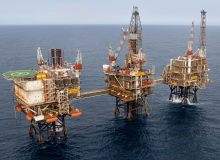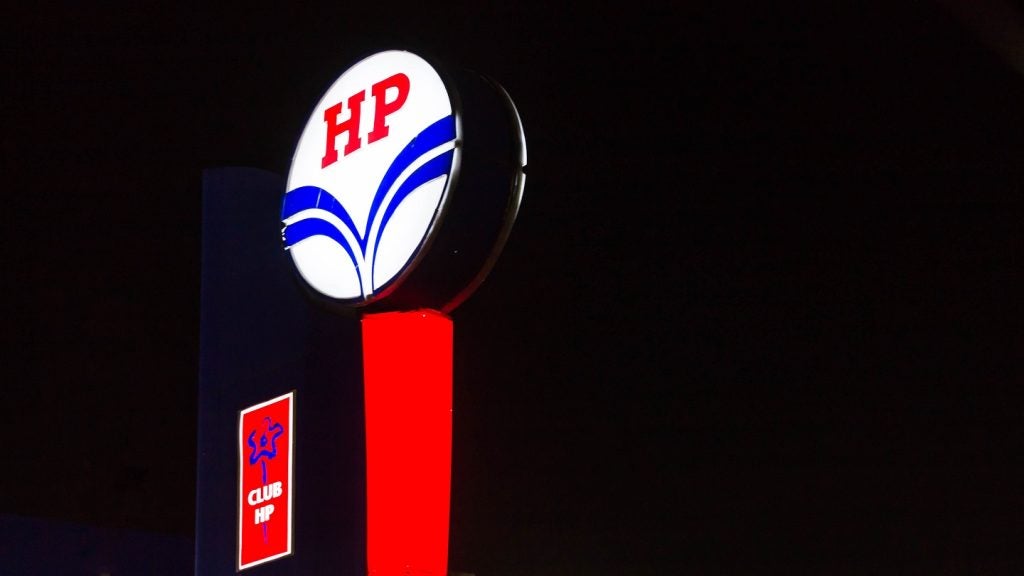
Forty-six years: the amount of time the world has before it runs out of oil and the industry as we know it disappears for good. That’s according to statistics from the ‘BP Statistical Review of World Energy’ published in June 2011.
Based on the number of proven reserves (we have 188.8t according to BP’s research) and consumption levels recorded last year, these figures add up, but with the world population set to jump 30% from it’s current seven billion to nine billion in as little as 40 years, we may have less time than we thought.
To make matters worse, regions with the highest proven and probable reserves have limited accessibility. Iraq, for example – slated to have the third-largest oil reserves in the world – has been scarred by years of war and requires modernisation and investment before exploration and production can really take off. Meanwhile, the question of whether to drill for oil in the Arctic – expected to hold 13% of the world’s undiscovered oil – has been a subject of ongoing political controversy for decades.
Forty-six years or less, that’s what the oil industry is faced with. But, if we can’t take advantage of existing reserves, will the growing number of consumers wait for buried oil to be accessed or will the world’s population demand other, more reliable energy resources?
‘False’ figures
It is widely believed that the world’s supply of oil will last until at least 2050, but this prediction may be a little optimistic due to uncertainty over the number of reserves we actually own and claim to exploit.
These numbers disclosed by national governments are suspected of being manipulated for political reasons.
How well do you really know your competitors?
Access the most comprehensive Company Profiles on the market, powered by GlobalData. Save hours of research. Gain competitive edge.

Thank you!
Your download email will arrive shortly
Not ready to buy yet? Download a free sample
We are confident about the unique quality of our Company Profiles. However, we want you to make the most beneficial decision for your business, so we offer a free sample that you can download by submitting the below form
By GlobalDataSee Also:
According to authors of ‘Cutting Gas Taxes Will Make Things Worse,’ a report for the Los Angeles Times, when Opec’s oil production quota system was introduced in 1985 to record the number of reserves in each country, a sudden leap in world oil reserves occurred – Kuwait’s reserves jumped 41%, Saudi Arabia’s shot up 50% and there was a 200% jump in Abu Dhabi and Dubai.
In Venezuela, obtaining reliable production figures from the government is extremely difficult, says Scott Pearson, an analyst for Latin America upstream research at Wood Mackenzie. "The government says that they are producing about three million barrels of oil per day, but our estimate is closer to 2.2 million barrels, based on our research and third-party opinion."
Vague rules about how countries should report their asset totals to investors has also led to the number of global reserves, and indeed the amount of time we have until oil runs out, being called into question.
Until December 2009, the US Securities and Exchange Commission (SEC) allowed only proven reserves to be reported to investors.
The SEC now allows companies to provide additional proven and probable (2P) and proven, probable and possible (3P) information, provided the evaluation is verified by qualified third-party consultants, although many companies choose to use 2P and 3P estimates for internal purposes only.
Essential exploration
Whatever the number of reserves, oil is still a major part of the world’s energy needs and demand for the black stuff is increasing year on year. But, before we can make the most of the assets we have left, we need to explore.
Exploration activity has increased substantially on the Norwegian continental shelf, where there are about 12.8bn cubic metres of oil equivalents, according to the Norwegian Petroleum Directorate’s basic estimates of discovered and undiscovered petroleum resources.
Tom Gederø, communications manager for the Norwegian Oil Industry Association says: "From a historical nadir around the middle of the previous decade, exploration peaked in 2009 with 72 completed exploration wells. Forty-one wells were completed last year, including 32 wildcats and nine appraisals. These yielded a total of 16 discoveries.
"It is also worth mentioning the Aldous Major/Avaldsnes discovery in the North Sea. This was the world´s largest offshore discovery in 2011 and could place itself among Norway´s top three largest ever," Gederø adds.
Oil production in Norway, however, has declined over the past decade due to the rise in gas production, which more than doubled over a ten-year period to reach 106.4bn cubic metres in 2010.
The UK’s continental shelf is still contains substantial oil reserves, despite having produced more than 40 billion barrels of oil equivalent over the past four decades, according to reputable industry organisations.
Oil and Gas UK forecasts that there are 14-24bn barrels of oil equivalent still to be recovered; that’s 24-42 years of remaining reserves based on 2010’s consumption of 1,590,000 barrels a day.
However, the announcement of the increase in the supplementary charge to Corporation Tax in the March 2011 budget has led to a major downgrade of investment opportunities by many companies.
In the US, the Obama administration is charging forward with plans to expand offshore drilling and has approved Shell’s plans for exploratory drilling in the Arctic Ocean, despite opposition from local and environmental groups.
Extreme Spill Technology CEO David Prior also disagrees with the plans. "We are likely to rely on these new reserves in dangerous locations and new reserves of ‘dirty oil’ like Canada’s oil sands. However, if we want to avoid catastrophic global warming we can’t afford to burn this much carbon, even if we don’t care about oil spills. We could solve both problems (oil spills in dangerous waters and excessive global warming) by investing in non-polluting energy."
Alternative fuels
Due to limited access to some of the most oil-rich regions in the world, including war-torn Iraq, Libya, which has also witnessed a halt in oil production due to political unrest, and the frozen Arctic waters, there has been a push for the offshore and hydrocarbons industries to look for alternative fuels such as methanol and compressed natural gas.
Global consulting firm Arup believes that in the medium to long-term the market will adopt these fuels, says the firm’s energy business leader Brian Raine: "The global demand for oil will be moderated in response to its price. As it becomes more costly to extract and bring to market, due to a number of technical/political and environmental factors, its price will increase and it will become less attractive as a form of energy.
"Oil will be limited to select transport uses where its high-energy density or convenience in liquid form is sufficiently desirable and it is cheaper than the next-best alternative. The alternatives include non-liquid fuels such as electric and natural gas sources," Raine adds.
Raine believes that with sufficient exploration and production there will be additional reserves but that their cost of development will be substantially above $100 per barrel. "This will significantly dampen demand for offshore oil and will increase pressure to recover more of the reserves from existing onshore and more accessible offshore fields such as the Gulf of Mexico and continental shelf," he says.
Oil resources are dwindling, and it seems that the only way we can hang on to the remaining reserves and tap into restricted or trapped oil in order to prolong the life of the resource, is to invest in expensive technologies and specialist personnel. But with the number of greener, more reliable alternative fuels growing in popularity, it may not be worth the risk.





